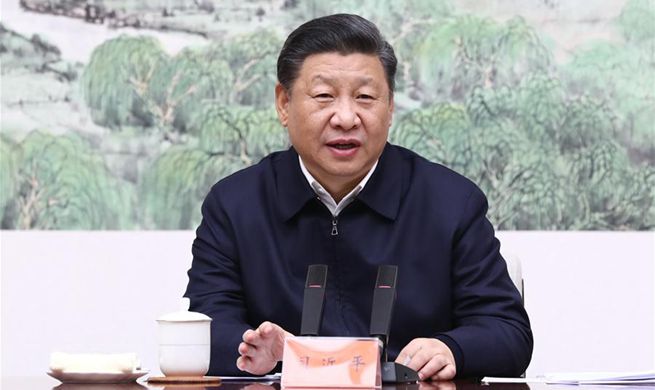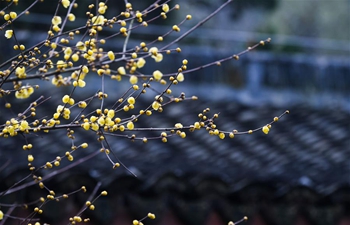by Ronald Njoroge
NAIROBI, Jan. 20 (Xinhua) -- Ben Kilonzo has been facing reduced maize yields due to insufficient rainfall.
The 55-year-old small-scale farmer from Kitui County, in southeastern Kenya, has been relying on rainfall to cultivate maize since he inherited his farm from his father over 20 years ago.
However, due to erratic rainfall, he has been incurring losses as crops fail to reach maturity.
Kilonzo said his only other option to get water for his crops is fetching water from a river nearby, using 20 liter containers.
"However, this is a time-consuming activity given the amount of water the crops need before they are ready for harvesting," Kilonzo told reporters on Saturday.
Fortunately for Kilonzo and other farmers located in the semiarid area in Kenya, there is abundant sunshine throughout the year.
To solve the rain-deficit problem, Kilonzo bought a solar-powered water pump for about 10,000 Kenyan shillings (98.3 U.S. dollars) to get water from a neighboring river.
"I have now been able to double my maize yields despite the erratic rainfall patterns by using solar technology," he said.
Samir Ibrahim, CEO of agriculture technology firm SunCulture, said that climate change is a reality that is affecting farmers in Africa.
Despite Africa having large tracts of arable land and two-thirds of its workforce in the agricultural sector, the continent remains a net importer of food, Ibrahim said.
One of the challenges facing farmers is lack of affordable access to water to irrigate their crops, he said.
"However through use of technology such as solar-powered pumps, farmers can have enough water for their crops," Ibrahim said.
According to him, Africa is the only continent facing a water scarcity that is not a physical water scarcity but an economic water scarcity as farmers cannot afford to pay for water from both surface and underground sources.
"By having access to affordable water sources, African farmers can massively increase their productivity and yields at farm level," he said.
Technology also exists in the market to ensure that even small-scale farmers can engage in precision irrigation and use water much more efficiently, Ibrahim said.
Edward Kipkoech, a farmer in Kenya's North Rift region, has also been using solar-powered pumps to irrigate his crops.
He has since diversified away from maize and grow high-value vegetables such as kales and capsicum due to now all-year-round availability of water.













